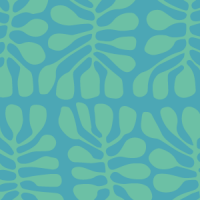faith, hope, love, and scars
Jul 5, 2019
Story
Born on Christmas Day of 1982, my birthdays as a child could have been festive and vibrant two times over.
Instead of bright lights and shiny boxes, celebration at home was marked by intentional normalcy. This was particularly painful in a country which celebrates prolonged Christmas which commences on the month of September. For me, this meant a prolonged sense of unimportance.
Two decades later on one lazy Sunday, my mother and I were deep in conversation. In one of those unexpected moments, she began peeling layers of her identity. She spoke of the pain when her husband, my father, chose to leave us.
My father chose to break our hearts during the Christmas season.
My mother gravitated towards her pain because it was real, present, and it did not leave her. She identified with it like a running narrative she felt compelled to advocate.
My father chose to let us go.
My mother could not let go – she held on to the lingering and powerful memory of pain.
I identified with my mother’s pain which was evidenced by her years of silence.
My mother gradually discovered how I coped with my own pain by writing letters. She accidentally found some of these inside an unassuming jar in our living room.
Writing has become my safe place.
To write means to breathe.
To write means to thrive.
To write means to survive.
Writing has become an avenue towards identifying and empathizing with my inner child.
In 2013, I unexpectedly became a mother. Not knowing how best to identify myself as a first time mother, I started to write. An earthy notebook I purchased in Vilnius years back encapsulates my letters to my son. At that time, the motherhood instinct has yet to fully embolden me and I addressed him as “baby person.” My messages were scribbled out of my deepest fears, one of which was the fear of identity and then, fear of failure. What kind of mother will I be?
Three years later, I created a Facebook page which serves as the repository of messages for my son. With merely 133 likes, the page is solely dedicated to my five-year-old son. I am cognizant that this online platform my not remain accessible by the time he is old enough. I still make the choice to leave digital footprints in the face of uncertainties – life is short, memory is fleeting, and love is eternal.
I am fully aware that my childhood, family background, and in general, my life has been uneasy, to the say the least. I sincerely do not hope that my son identifies with the narratives of pain that I may unintentionally reflect upon him.
Indeed, growing up, I identified with the world’s pains. I dedicated the strongest veins of my heart and the most brilliant elements of my mind to student activism and later on, development work and the humanitarian imperative.
I identified with the blatant, muted, and even unsaid emotions of the weak and oppressed. I identified with their fears and hopes as if they were mine.
My five-year-old son is the embodiment of my hopes, dreams, and fears. My son is a ball of energy, yet frail and fragile. I have hopes for the world but the world can be unsafe and unkind – I speak from personal history.
As a woman and as a mother, I often identify with the unprotected version of my younger myself.
I was at the same age as my son now, when my father decided to abandon us. We were no longer part of his hopes and dreams.
We were dispensable human beings. We were not worth fighting for.
I identified with rejection.
Brokenness was a daily subsistence; hence, painfully familiar and strangely comfortable.
During those years, I could not find anyone I could identify with. I looked around and saw my mother, older brother, and older sister suffocate in a lost sense of self. They, too, tried to find someone they could identify the pain with. To find a sense of identity and strength from each other as a family was not an option. As the family who was left behind, there was an implicit sense of collective defeat and insecurity.
This sense of self, identification, cast shadows upon my childhood. Sexual assault from the male adults within the household and the neighborhood left eternal scars. During those times, I only had one prayer, for my father to choose to come home. The prayer, in essence, was the prayer to be chosen again. To be the one not left behind.
My prayers were excruciatingly consistent leaving no space and energy to reflect over the abuse against my childhood.
I buried the memories of child molestation in the deepest recesses of my mind where she, my younger self, was safe. One day, I was giving a speech on young women’s leadership in a rural community. During the open forum, two teenage girls shared their experiences on sexual assault and asked for advice and comfort. While listening, my own personal memories dovetailed like an emotional avalanche. I first shared my experiences with young women I hardly knew. I decided to identify with their pain.
Along the years, the scars became strengths. I have comforted, prayed for, and acted on behalf of others who have suffered the same with some, bearing greater scars.
As I grow older, I realized that there are also others who have suffered and yet they have chosen a different path from mine. Some identified with aggression as they inflicted the same harm they were subjected to towards others.
It was then I recognized that I did not identify with brokenness. Brokenness was what happened to me. I can choose to identify with either love or hate.
I identify with love.
Identity is powerful. It can make and break lives, communities, and generations.
Only when identity becomes empathy will identity rise up and become love.




